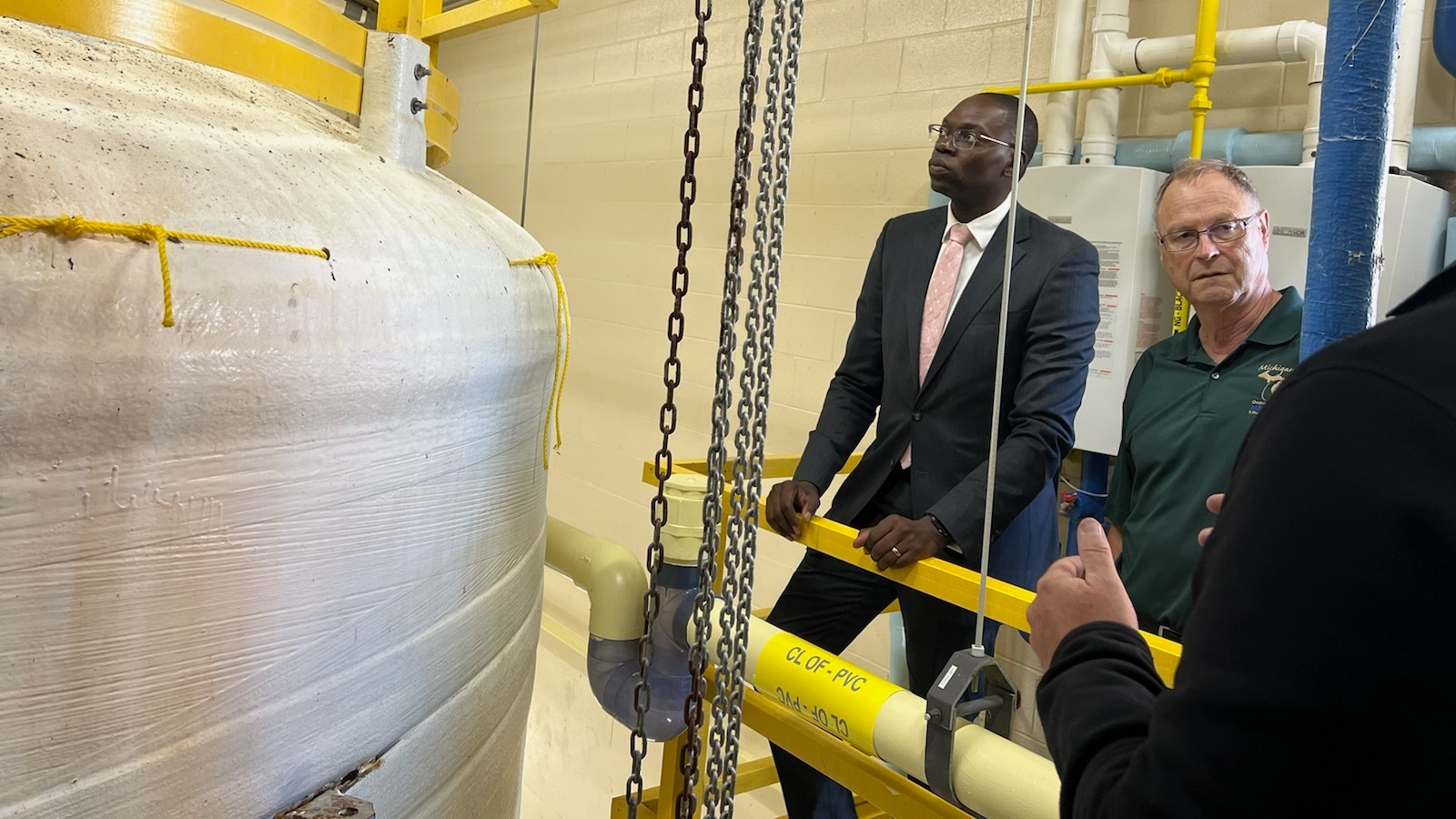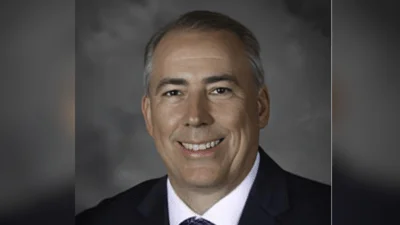Michigan Lt. Gov. Garlin Gilchrist II, left. | michigan.gov
Michigan Lt. Gov. Garlin Gilchrist II, left. | michigan.gov
Michigan Lt. Gov. Garlin Gilchrist II and Michigan Department of Agriculture and Rural Development (MDARD) Director Gary McDowell are calling attention to a $44 million investment in the Milk River Intercounty Drain Drainage District (MRIDDD) facilities.
According to a Michigan.gov press release, the planned upgrades include modernizing systems aimed at improving performance, reliability and quality. Currently, MRIDDD accepts storm drainage from the cities of Harper Woods and St. Clair Shores and combined sewage from the city of Grosse Pointe Woods.
"Our administration has set the bar for commitment for investing and rebuilding infrastructure across our state," said Gilchrist, who recently toured the upgraded facilities along with McDowell. "Under Gov. Whitmer's leadership, we have already fixed 16,000 lane miles of road, but we aren’t stopping there. We are investing in critical infrastructure improvements and repairing Michigan's water infrastructure and drain systems to protect public health while growing our economy. Projects like the Milk River Intercounty Drain showcase what can happen when we work together to improve our communities."
MRIDDD now also stores combined sewage during rain events that top the capacity of the downstream system and provide treatment for any discharges. In addition, the facilities also provide flood protection to the tributary communities, pumping flows from big storms to safeguard against basement and street flooding.
While MRIDDD underwent significant improvements just over three decades ago, by 2016 much of the district’s facilities and equipment needed important updates and modernization. With construction beginning in November of that year, infrastructure improvements have included refurbishment and replacement of pumping systems, refurbishment of the disinfection system, structural and architectural repairs to the facilities to extend life and comply with current code and upgrades to the electrical system to improve reliability and efficiency.
“When we talk about investing into Michigan’s infrastructure, often people think of how we’re fixing our roads, but infrastructure improvements include much more, like our robust intercounty drain systems,” McDowell said. “There are more than 1,000 intercounty drainage systems in Michigan with an estimated combined length of more than 6,000 miles, serving approximately 6 million acres. County and intercounty drains play a critical role in developing agriculture, roads and highways, residential, and commercial properties by removing excess soil moisture, reducing flood impacts and improving public health.”
Since taking office, Gov. Gretchen Whitmer has made putting more resources into water infrastructure a top priority of her administration. Her Building Michigan Together Plan includes nearly $2 billion to address critical water infrastructure needs, creating some 27,000 jobs.
In addition, more than $1 billion has been set aside for drinking water improvements, including $325 million to replace lead service lines, $55 million to reduce toxic contaminants like PFAS, and funds to rebuild wastewater and sewer infrastructure, protect groundwater resources, provide clean water for schools and childcare centers, prevent highway flooding.


 Alerts Sign-up
Alerts Sign-up